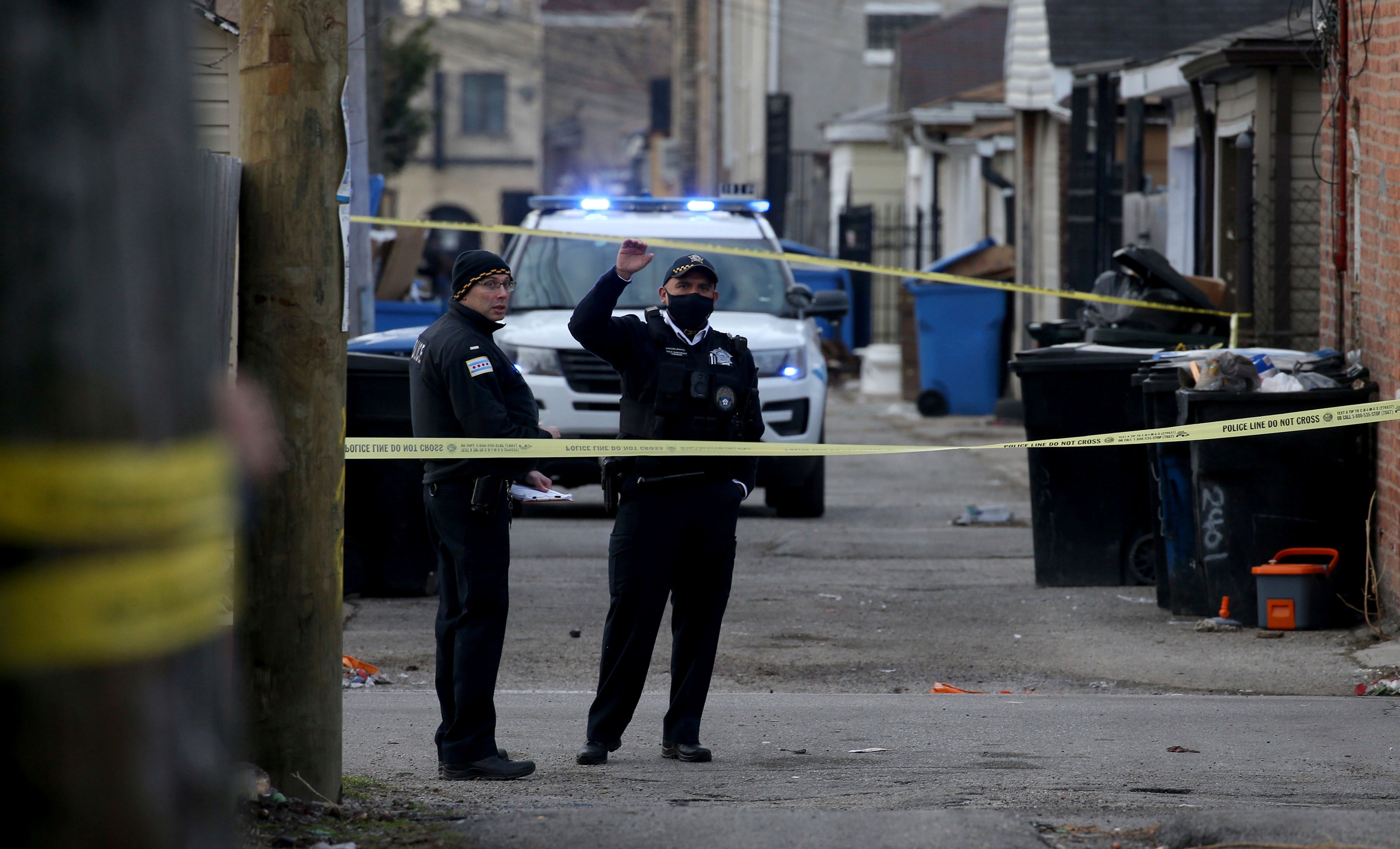Agency might release video of Chicago police shooting of boy
The agency that investigates Chicago police shootings says it is trying to figure out a way to legally release body camera video of an officer fatally shooting a 13-year-old earlier this week

Your support helps us to tell the story
From reproductive rights to climate change to Big Tech, The Independent is on the ground when the story is developing. Whether it's investigating the financials of Elon Musk's pro-Trump PAC or producing our latest documentary, 'The A Word', which shines a light on the American women fighting for reproductive rights, we know how important it is to parse out the facts from the messaging.
At such a critical moment in US history, we need reporters on the ground. Your donation allows us to keep sending journalists to speak to both sides of the story.
The Independent is trusted by Americans across the entire political spectrum. And unlike many other quality news outlets, we choose not to lock Americans out of our reporting and analysis with paywalls. We believe quality journalism should be available to everyone, paid for by those who can afford it.
Your support makes all the difference.
The agency that investigates Chicago police shootings said it is trying to figure out a way to legally release body camera video of an officer fatally shooting a 13-year-old earlier this week.
Ephrain Eaddy, a spokesman for the Civilian Office of Police Accountability, said in a statement late Thursday that the agency was “making every effort and researching all legal avenues" that would allow for the public release of all video that might have captured the early Monday shooting of Adam Toledo
According to police, officers were dispatched to an area in the Little Village neighborhood on the city’s West Side after the department's ShotSpotter technology detected the sound of gunfire nearby. When they arrived, Toledo and a 21-year-old man ran away. While chasing the teen, there was an “armed confrontation” during which the officer shot him once in the chest. He died at the scene. The 21-year-old man was arrested on a misdemeanor charge of resisting arrest.
Police said investigators recovered a gun near the shooting scene, but the department hasn't said whether the teen fired it or was holding it during the chase. The officer was placed on administrative leave, which is standard practice in police shootings. But police haven't released the name of the officer who shot the teen, which is typical for the department early on during such investigations.
There were immediate calls for police to release the video of the shooting. The city has a troubling history of trying to suppress video that reflects poorly on its police department, including in the 2014 killing of 17-year-old Laquan McDonald — for which the officer who shot the Black teenager 16 times eventually was convicted of murder — and in a botched 2019 raid during which a naked, Black, innocent woman wasn't allowed to put on clothes until after she was handcuffed.
Eaddy said earlier Thursday that the police accountability board is legally prohibited from releasing the video of Monday's shooting because Adam was a minor. But a short time later, Police Superintendent David Brown released a statement in which he said he “adamantly” supports the release of the body camera video.
In some past cases, the department has quickly moved to release video of police shootings to dispel speculation about officer misconduct. At the same time, in a case that is certain to gain widespread attention because of the boy's age, Brown pointed to a recent spate of violent crimes involving minors in the city.
Meanwhile, Mayor Lori Lightfoot took to Twitter to say it is important that video of the shooting be shown to the boy's family and then be released to the public as quickly as possible.
Matt Topic, a Chicago attorney who has handled several cases involving public records, said the police accountability board should discover in its research that it is, in fact, legal to release the body camera footage. He told the Chicago Sun-Times that the courts “have repeatedly rejected” the argument that the Illinois Juvenile Court Act prevents the release of such videos that involve minors.